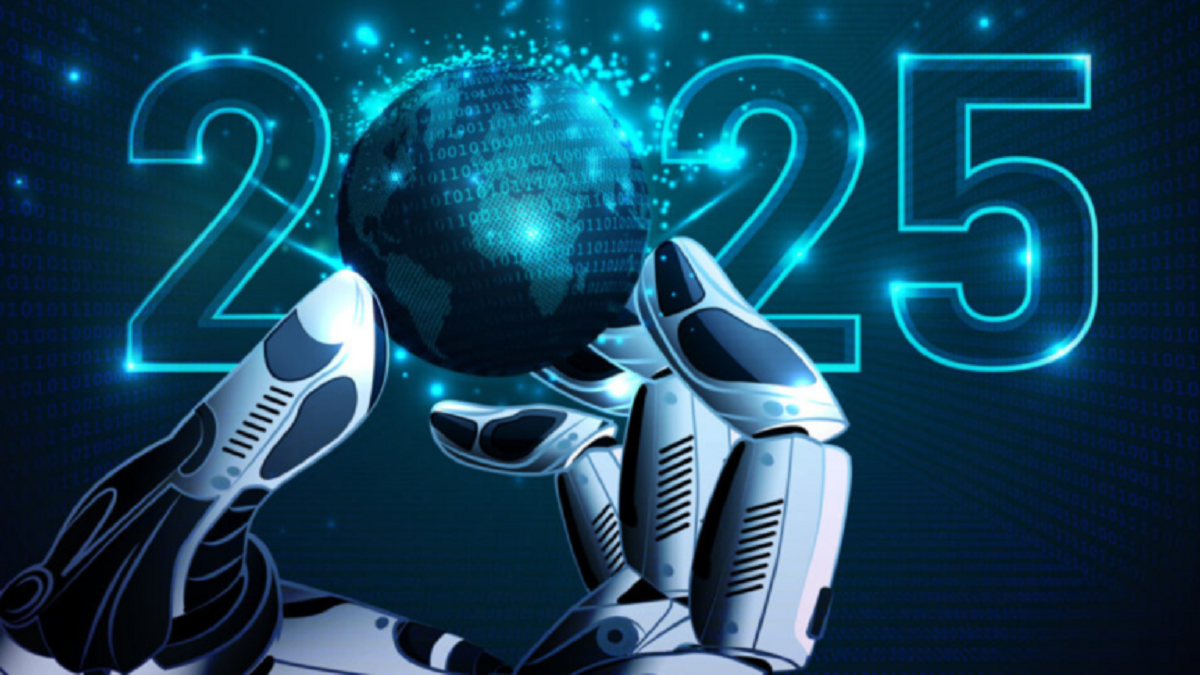2 years ago the official launch of ChatGPT revolutionized the artificial intelligence (AI) market. While many associate the birth of AI with the launch of the chatbot (which had a world record of 1 million users in just 5 days of existence), its beginnings date back much earlier.
The first research on AI dates back more than 80 years ago in the United States when a group of scientists demonstrated how, through a series of trials and errors, a system did not need to be programmed with fixed rules, but could learn in a new way. autonomously exploiting the data it already had.
Basically that was the beginning of artificial intelligence as it would later be known.
What exactly is artificial intelligence
Before delving into what happened with AI in 2024 and what is expected, it is interesting to highlight what exactly we are talking about when we talk about artificial intelligence.
Let’s start by debunking myths; AI is not a robot, nor is it a spaceship.
When we refer to artificial intelligence we are talking about a set of simulation of human intelligence processes by machines and computer programs.
Translated simply: basically what AI seeks is to develop tasks that if carried out by humans would require the use of their intelligence (and learning, decision making, pattern recognition and problem solving).
The interesting thing here is that this technology is capable of managing enormous amounts of statistical data, detecting trends and outlining recommendations based on the information collected, and even implementing them.
To put it again in ATP language, artificial intelligence helps us save time and gain productivity. What would take a person hours, months or even years, AI can solve in fractions of seconds.
AI in the corporate world
artificial intelligence.jpg
The “2024 Global Workforce of the Future” study surveyed 35,000 employees around the world about their connection to AI.
AI
We could say that 2023 was the year in which the world discovered AI thanks to ChatGPT, and 2024 was the year in which organizations worldwide began to use it more strongly.
AI is one of the most fascinating and controversial inventions of the last century and without a doubt one of the main dilemmas it entails is in the workplace (in the generation or elimination of jobs).
On the one hand, AI comes to eliminate or replace roles, and on the other, it comes to create millions of new jobs. In fact, it is estimated that 97 million people will be needed to fill new jobs worldwide by 2025.
Regarding the business tendency to use AI, according to a survey published by McKinsey, 65% of companies have already implemented it. This result represents a double increase compared to the same study carried out in 2023.
Another interesting fact that is pointed out is that the tasks that are most automated are found in the marketing, sales, and information technology departments. Content creation, development design and customer service are among the top activities that are most solved with AI.
Being able to measure the impact of a new technology, function or tool within the business is essential before continuing to allocate more budget to it and it is surprising to see that, although interest in AI is growing, in most industries, the budget allocated is only around 5% of the total.
AI in numbers globally
- The global AI market is currently valued at $279 billion (GrandViewResearch).
- By 2030, the AI market is expected to grow sixfold, reaching $1.81 trillion (GrandViewResearch).
- The profit that AI is expected to make in the software industry by 2025 is estimated at $126 billion (Omdia).
- Between 2015 and 2019, the number of organizations using AI grew by 270% (Forbes).
- It is estimated that by 2035, AI will help employees increase their efficiency and productivity by up to 40% (P&W).
- More than 50% of organizations already use some type of chatbot to respond to customer queries (Gartner).
- Only 7% of consumers trust an AI tool to resolve their queries (Accenture)
What is expected from AI in the next year?
Although the list of AI metrics and its impact on business is endless, it is essential to highlight that by 2025 AI is expected to continue evolving.
On the one hand, it is estimated that there will be greater regulation and scrutiny regarding the use of these tools, generating a greater need for compliance and transparency in their use by companies.
Also, it is believed that AI will be multimodal (so that we can interact with AI in a more intuitive way, allowing us to have a sort of “personal assistant” just a click away). Likewise, among the trends that stand out for 2025 are advances in biotechnology and greater accessibility in general terms.
CEO & Founder of FlyDevs
Source: Ambito
I am a 24-year-old writer and journalist who has been working in the news industry for the past two years. I write primarily about market news, so if you’re looking for insights into what’s going on in the stock market or economic indicators, you’ve come to the right place. I also dabble in writing articles on lifestyle trends and pop culture news.




